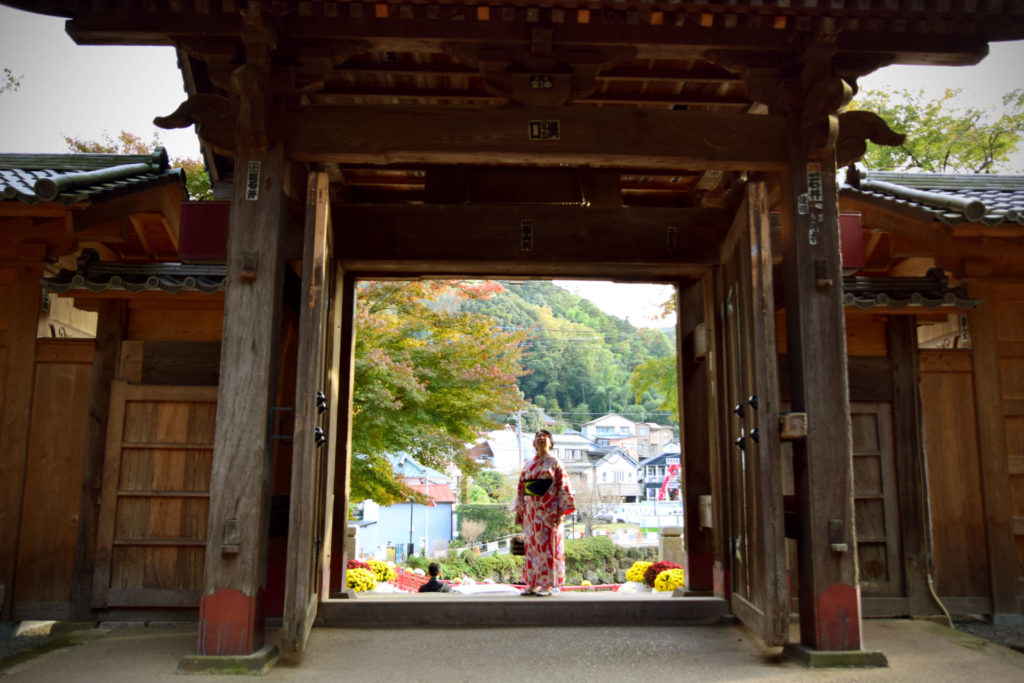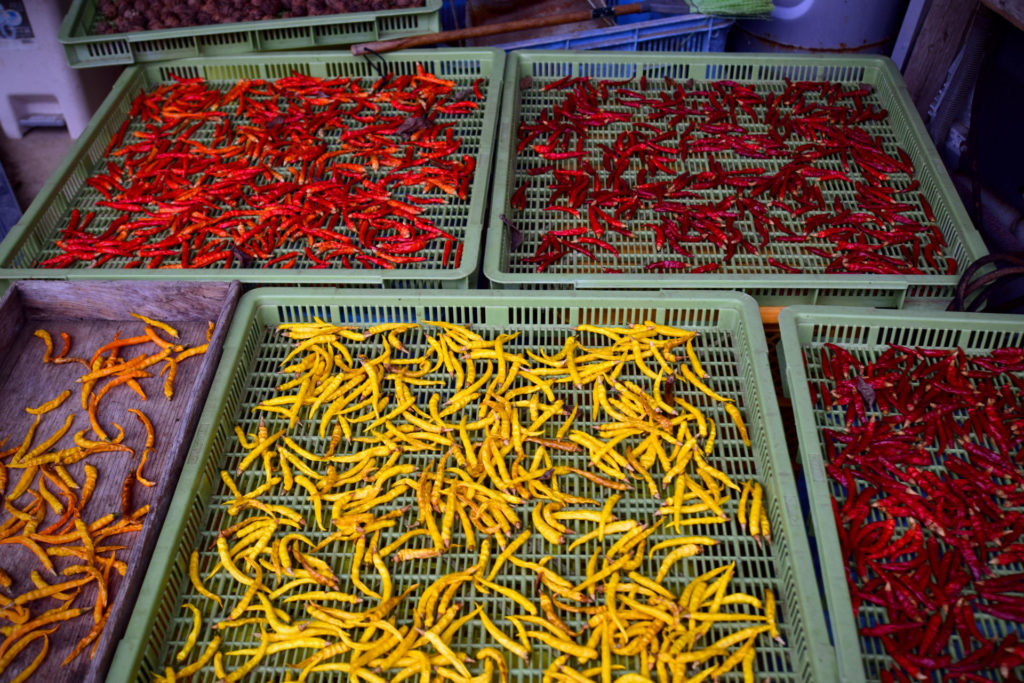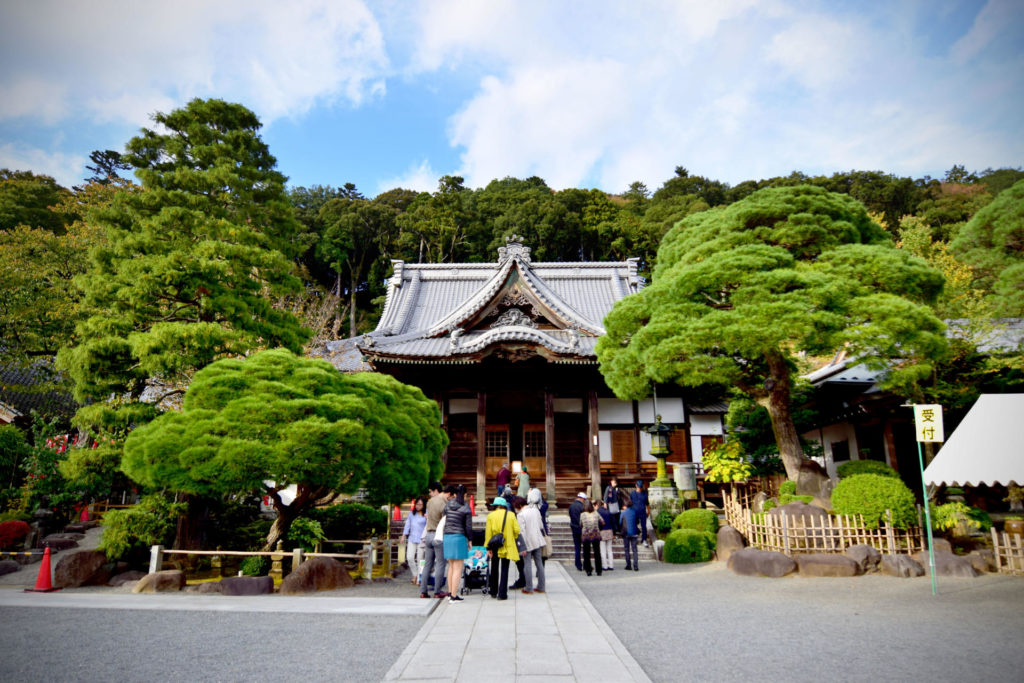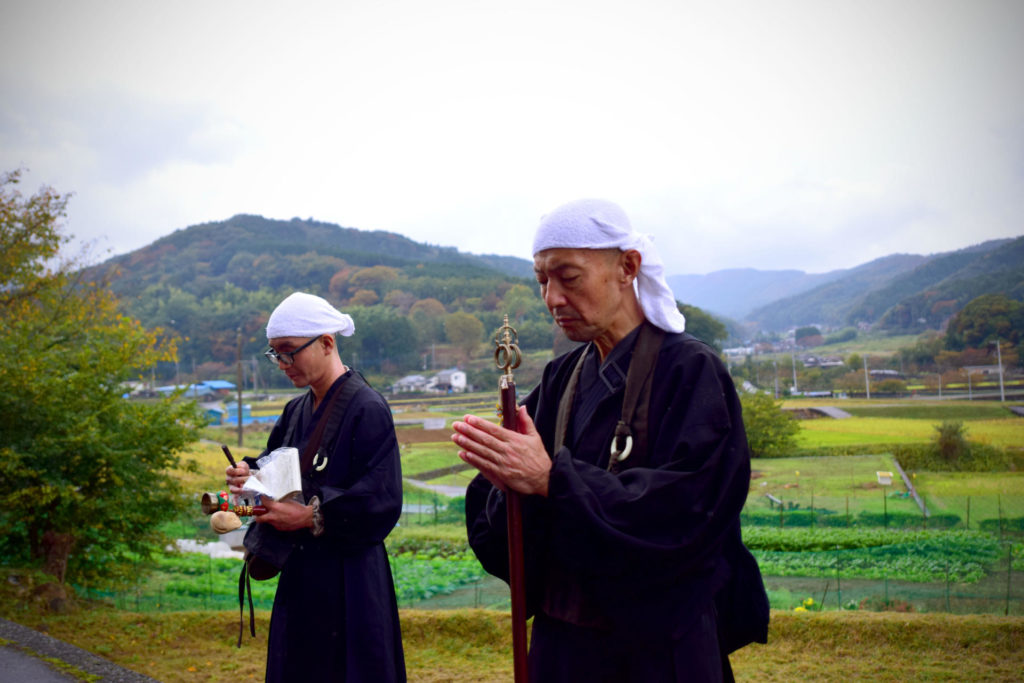Nestled in the hilly center of Izu Peninsula is Shuzenji Onsen, a hot spring village with a 1,200-year-old history. With ancient temples and cobblestone streets lined with ryokan, it’s earned its nickname as the “Little Kyoto of Izu.”
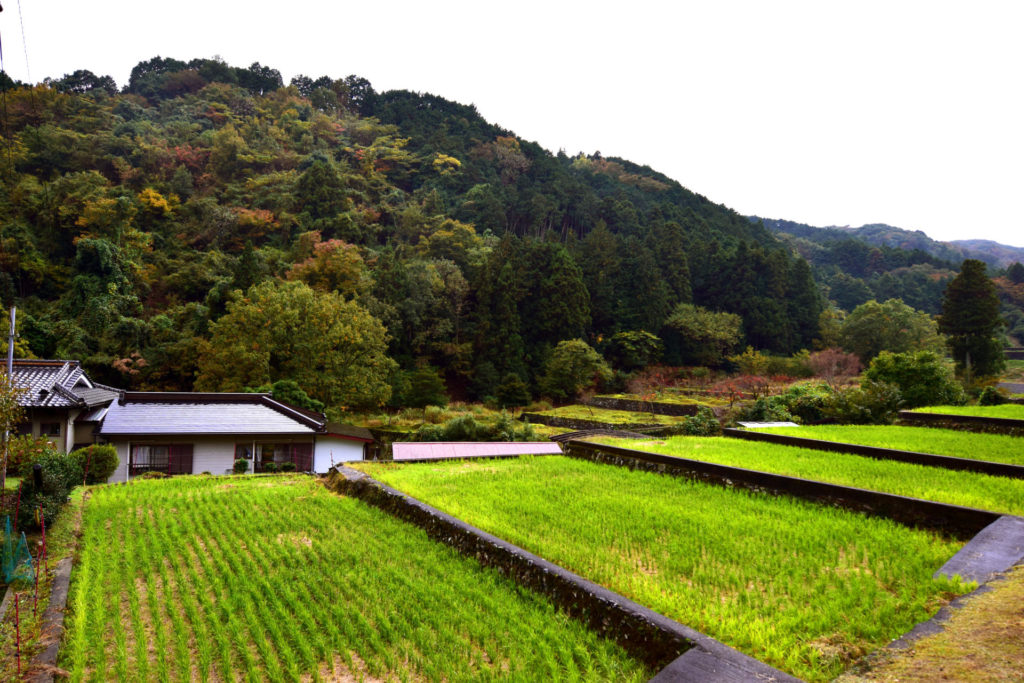
The crowds and touristy shops you would normally associate with an onsen resort town are absent here. Spread out across the valley, the snug town home to 50,000 residents has a quiet and simple charm.
Even on a cold, windy and rainy November day, Shuzenji Onsen still did not disappoint. Pulling into Shuzenji, it was apparent why Natsume Soseki, arguably Japan’s most famous novelist, described how arriving here felt like coming home after a long trip away.
Shuzenji was built around Katsura River, where it is said that in 807 A.D., famed Buddhist high priest Kobo Daishi discovered Tokko-no-yu, Izu’s oldest hot spring. Warm up at the spring’s foot bath where a cosy, iconic gazebo sits in the center of the town, enclosed by the Amagi, Sugumo and Daruma mountains.
From the gazebo, you can see fine traditional ryokan lining the riverbed including Kikuya, where Soseki checked in to recuperate from a illness. If you’re not sure who Soseki is, you might recognize him and his trademark mustache from the pre-2004 ¥1,000 notes. Prior to his visit, he was a successful, ambitious man planning a grand tour to Manchuria, Japan’s newly acquired colony after the Russo-Japanese War. However, life took its course and in 1910, he was struck with sudden illness. The country held its breath as Soseki teetered on the brink of death in the tatami rooms of Kikuya. Fortunately, he recovered and it was here where he produced some of his best work including “Kokoro” and “The Wayfarer.”
His collapse, known as the “Shuzenji no Taikan” incident, significantly impacted his way of thinking and writing. Although ailing, he was touched by a spiritual calm and gratefulness for the essentials of life: family, friends and nature, which influenced his later work. This is the essence of Shuzenji: a refreshing focus on the simple things.
If you’re looking for inspiration, Chikurin no Michi, which literally translates to “bamboo forest path” is a few steps away. The picturesque garden characterized by looming bamboo trees and the red Kaede Bridge over the river has a seating platform in the middle of the path and even lights up at night for a romantic post-onsen stroll.
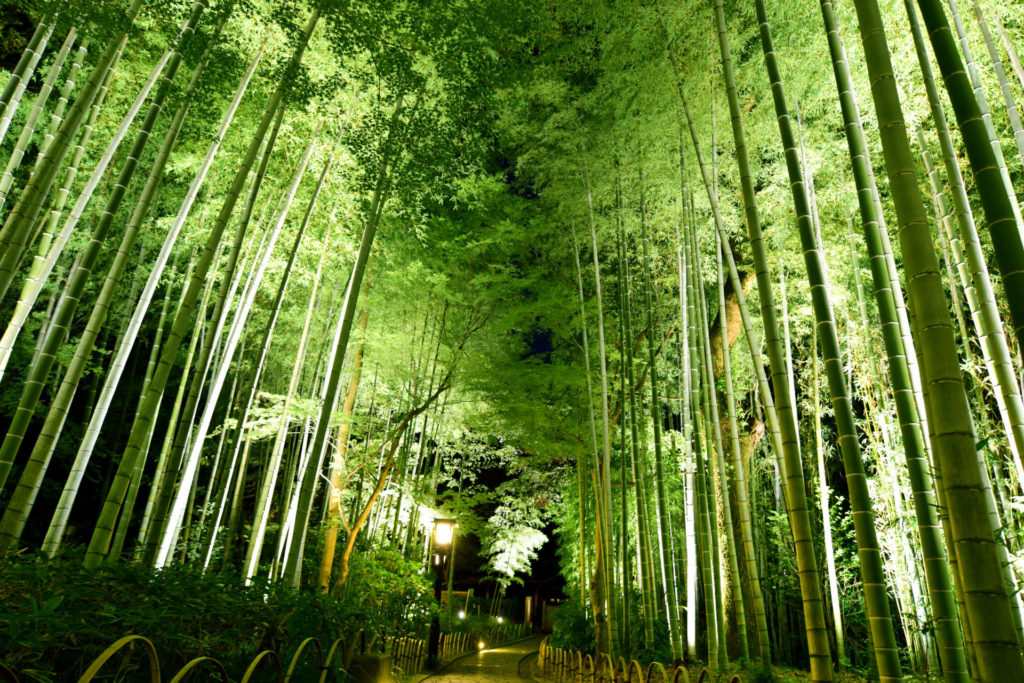
Back to the town center is the main Shuzenji Temple after which the town is named. The temple is the starting point for the annual Katsuradani Pilgrimage, following a trail dotted with 88 shrines built by Kobo Daishi who brought soil from Shikoku, mirroring the well-known Shikoku Pilgrimage. A three-day pilgrimage of easy hill climbs past rice paddies and waterfalls is held Nov. 7-9.
Densely surrounded by forests, it’s easy to forget Shuzenji is located on a peninsula. But dinner at the local izakaya displays the best of Izu’s land and seafood: kani nabe (crab hot pot), sashimi, shiitake mushrooms and seasonal mountain vegetables, soba buckwheat noodles, oden and in the middle of the table, a massive wasabi root. Different from the usual wasabi paste that comes out of a tube, freshly grated wasabi (Japanese horseradish) has a raw kick and a subtle flavor that makes a perfect condiment for nearly every Japanese dish. If you’re feeling brave (or want to clear your sinuses), try the wasabi ice cream found all over town.
No trip to Shizuoka is complete without a view of Mt. Fuji. A 20-minute drive up Mt. Daruma offers panoramic views of Mt. Fuji and Suruga Bay, a view that was highly praised when featured on a photography panel in the 1939 New York International Exposition. Year-round camping is also available and can be booked online.
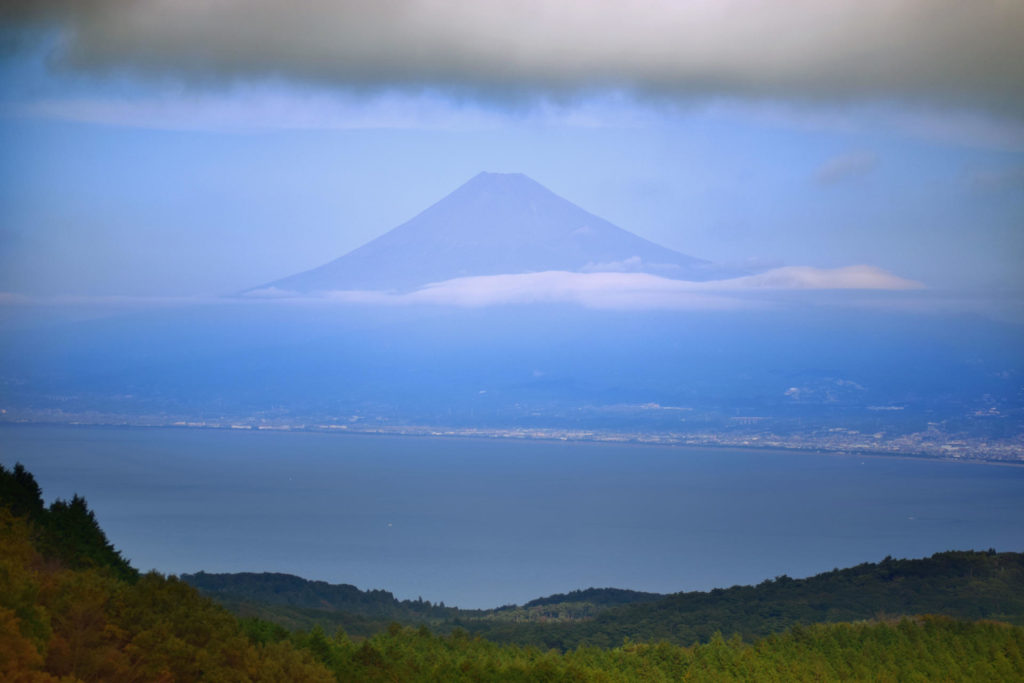
On your way home, a visit to Baird Beer’s Shuzenji Brewery is a must. The sustainable- minded brewery and taproom celebrates its fourth year this June and cranks out a variety of craft beer using local and seasonal ingredients. There are free brewery tours on weekends and public holidays.
Getting There
Take the JR Tokaido Shinkansen from Tokyo to Mishima (45-60 minutes, ¥4,000 yen one-way). From Mishima Station, it will take another half hour to Shuzenji Station. Shuzenji Onsen is a ten-minute bus or taxi ride from Shuzenji Station.
Ryokan at Shuzenji tend to run on the higher end, with prices ranging from ¥15,000 to over ¥100,000 per night. If you’re on a budget, the cheaper minshuku lodges are located further up the hills. Onsen bathing is possible at the renovated Hakoyu public bath, although several of the ryokan and minshuku open their baths to daytrippers for around ¥1,000 during the day.

